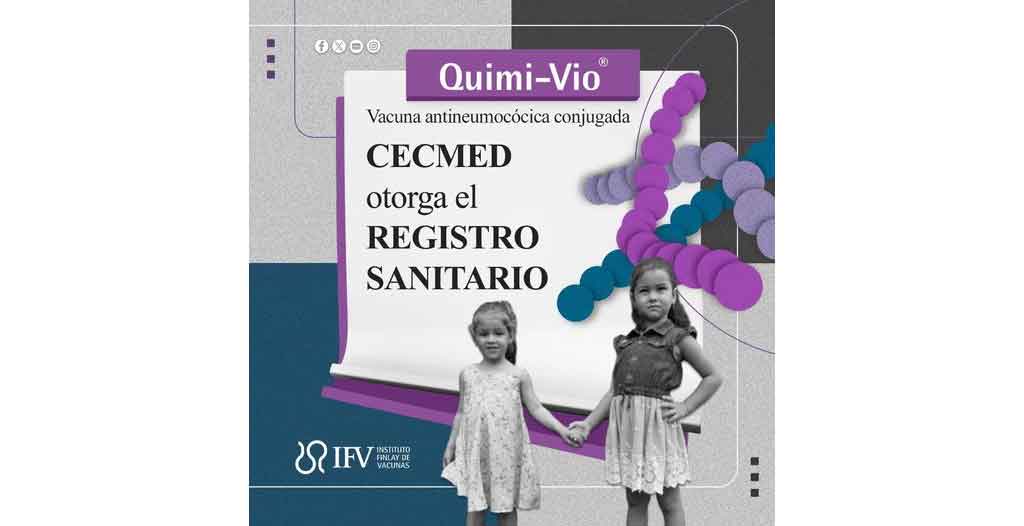After concluding all the required clinical trials, which show sufficient evidence of quality, safety and efficacy, the regulatory Center granted the registration to the injectable vaccine, developed and produced by the Finlay Vaccine Institute (IFV), a project it began in 2012.
“It is a very complex vaccine, which, when introduced in the countries that have already used it, has led to a significant improvement in children’s health indicators in terms of respiratory disease morbidity and infant mortality due to infections,” Dagmar García, director of Research at the IFV, recently said.
The first study with Quimi-Vio was carried out in the central province of Cienfuegos in 2023 “and on that occasion more than 90 percent of all children between one and five years of age were vaccinated. It was approximately 11,600 children, the specialist recalled.
Garcia further said that, in Cienfuegos, in 2018 and 2019, community clinical trial was carried out, in which 93 percent of all children between one and five years of age was injected.
“One year after immunizing them, a 63 percent reduction in hospitalization rates for respiratory disease was observed; and a 73 percent reduction in invasive pneumococcal disease, for the serotypes contained in the vaccine,” he added.
In June this year, it was announced that an intervention study against pneumococcal disease in infants under one year of age (two, four and 11 months old) will be carried out with Quimi-Vio also in Cienfuegos. According to the main researcher of the Pedro Kourí Institute of Tropical Medicine (IPK) of Cuba, María Eugenia Toledo, Quimi-Vio will protect infants under one year of age from 11 serotypes that produce pneumococcal disease.
mh/rgh/cdg










